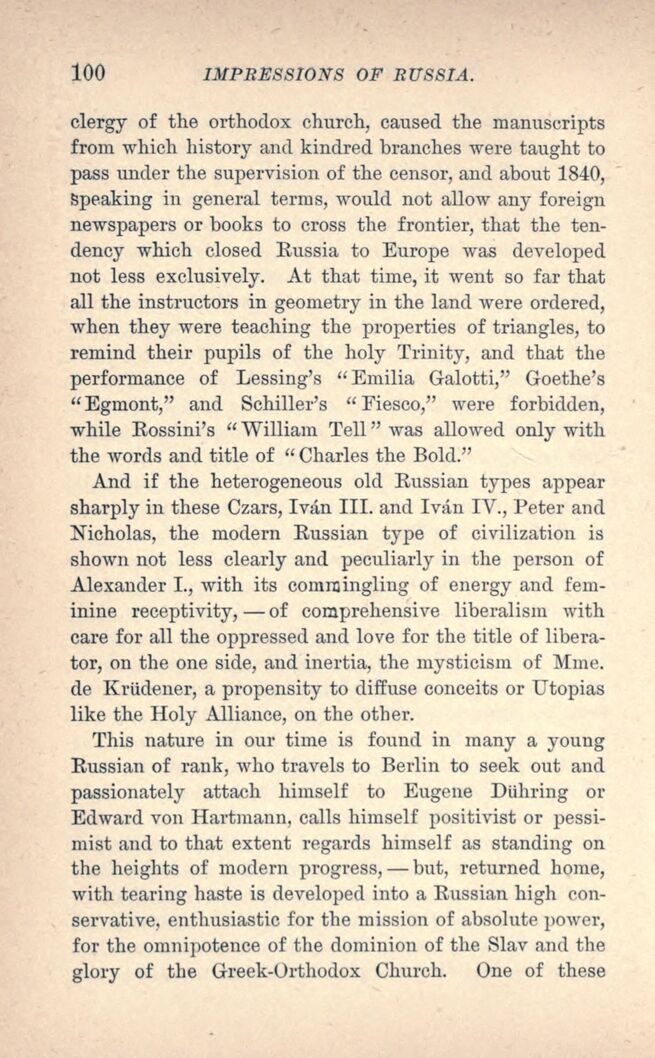
Full resolution (JPEG) - On this page / på denna sida - VI

<< prev. page << föreg. sida << >> nästa sida >> next page >>
Below is the raw OCR text
from the above scanned image.
Do you see an error? Proofread the page now!
Här nedan syns maskintolkade texten från faksimilbilden ovan.
Ser du något fel? Korrekturläs sidan nu!
This page has been proofread at least once.
(diff)
(history)
Denna sida har korrekturlästs minst en gång.
(skillnad)
(historik)
clergy of the orthodox church, caused the manuscripts
from which history and kindred branches were taught to
pass under the supervision of the censor, and about 1840,
speaking in general terms, would not allow any foreign
newspapers or books to cross the frontier, that the
tendency which closed Russia to Europe was developed
not less exclusively. At that time, it went so far that
all the instructors in geometry in the land were ordered,
when they were teaching the properties of triangles, to
remind their pupils of the holy Trinity, and that the
performance of Lessing’s “Emilia Galotti,” Goethe’s
“Egmont,” and Schiller’s “Fiesco,” were forbidden,
while Rossini’s “William Tell” was allowed only with
the words and title of “Charles the Bold.”
And if the heterogeneous old Russian types appear
sharply in these Czars, Iván III. and Iván IV., Peter and
Nicholas, the modern Russian type of civilization is
shown not less clearly and peculiarly in the person of
Alexander I., with its commingling of energy and
feminine receptivity, — of comprehensive liberalism with
care for all the oppressed and love for the title of
liberator, on the one side, and inertia, the mysticism of Mme.
de Krüdener, a propensity to diffuse conceits or Utopias
like the Holy Alliance, on the other.
This nature in our time is found in many a young
Russian of rank, who travels to Berlin to seek out and
passionately attach himself to Eugene Dühring or
Edward von Hartmann, calls himself positivist or
pessimist and to that extent regards himself as standing on
the heights of modern progress, — but, returned home,
with tearing haste is developed into a Russian high
conservative, enthusiastic for the mission of absolute power,
for the omnipotence of the dominion of the Slav and the
glory of the Greek-Orthodox Church. One of these
<< prev. page << föreg. sida << >> nästa sida >> next page >>